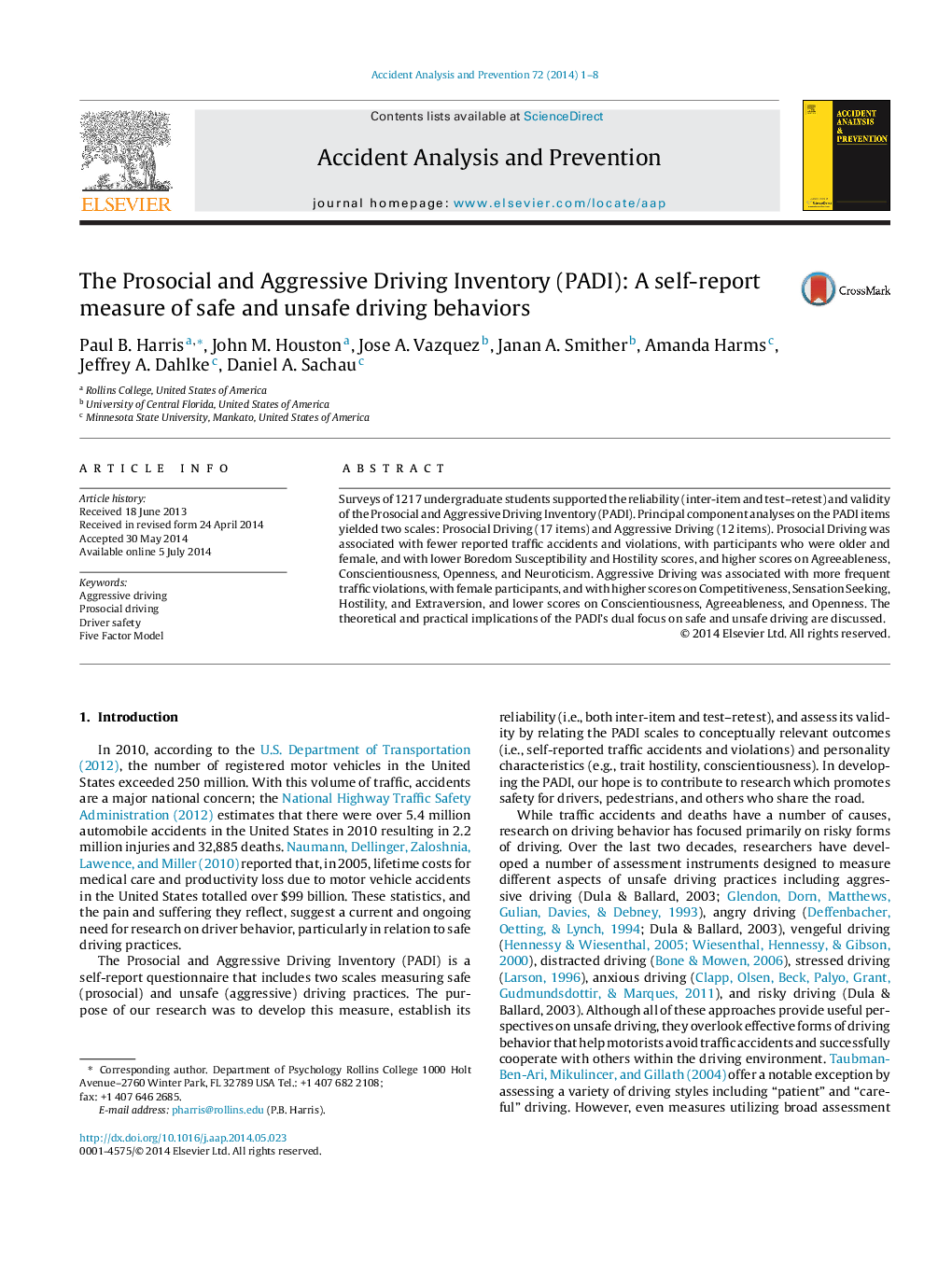| Article ID | Journal | Published Year | Pages | File Type |
|---|---|---|---|---|
| 572246 | Accident Analysis & Prevention | 2014 | 8 Pages |
•We tested a new questionnaire, the Prosocial and Aggressive Driving Inventory (PADI).•We administered online and paper forms to 1217 undergraduate students.•PC analyses yielded separate scales for Prosocial and Aggressive Driving.•Our results supported the inter-item and test–retest reliability of PADI scales.•Scales correlated with reported traffic violations and related personality measures.
Surveys of 1217 undergraduate students supported the reliability (inter-item and test–retest) and validity of the Prosocial and Aggressive Driving Inventory (PADI). Principal component analyses on the PADI items yielded two scales: Prosocial Driving (17 items) and Aggressive Driving (12 items). Prosocial Driving was associated with fewer reported traffic accidents and violations, with participants who were older and female, and with lower Boredom Susceptibility and Hostility scores, and higher scores on Agreeableness, Conscientiousness, Openness, and Neuroticism. Aggressive Driving was associated with more frequent traffic violations, with female participants, and with higher scores on Competitiveness, Sensation Seeking, Hostility, and Extraversion, and lower scores on Conscientiousness, Agreeableness, and Openness. The theoretical and practical implications of the PADI's dual focus on safe and unsafe driving are discussed.
